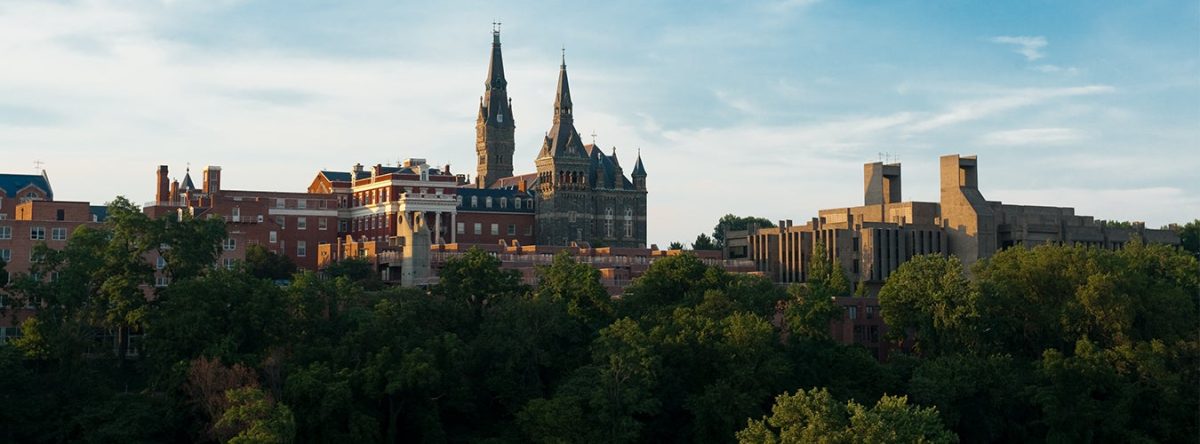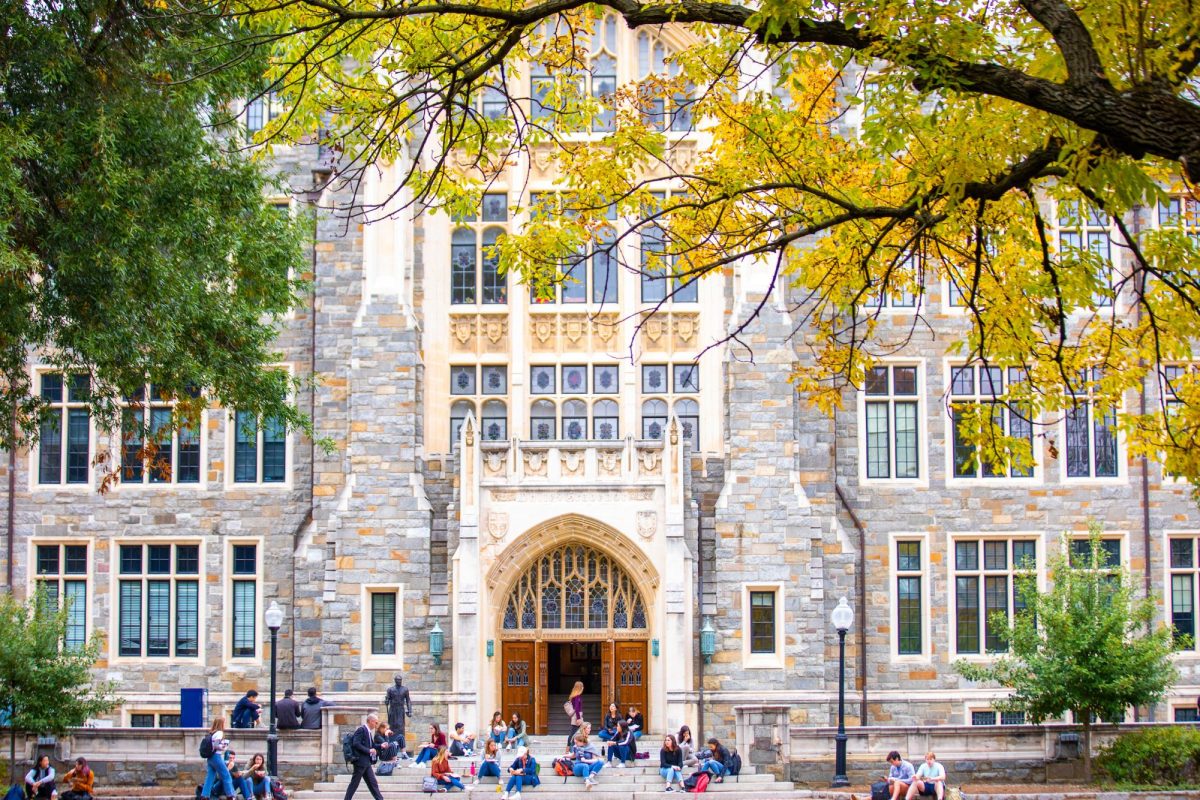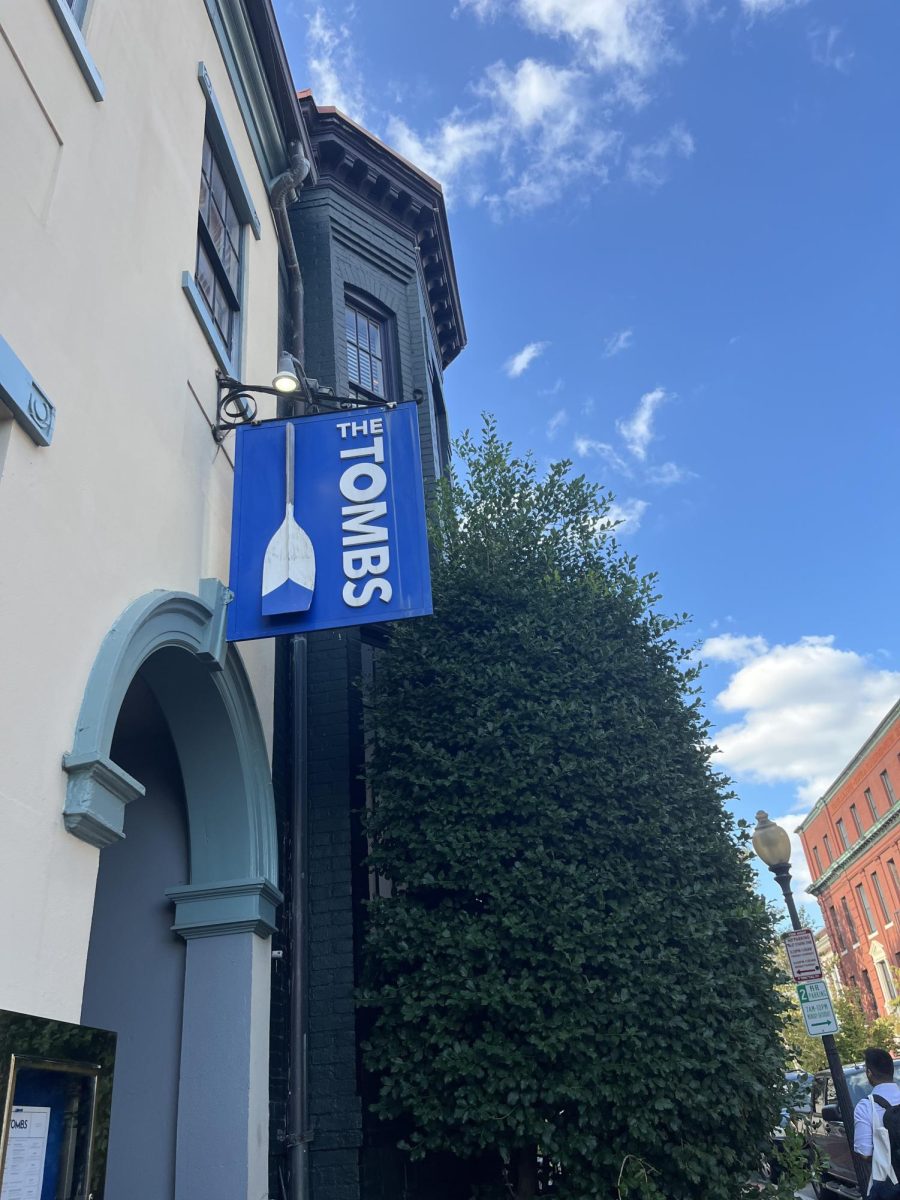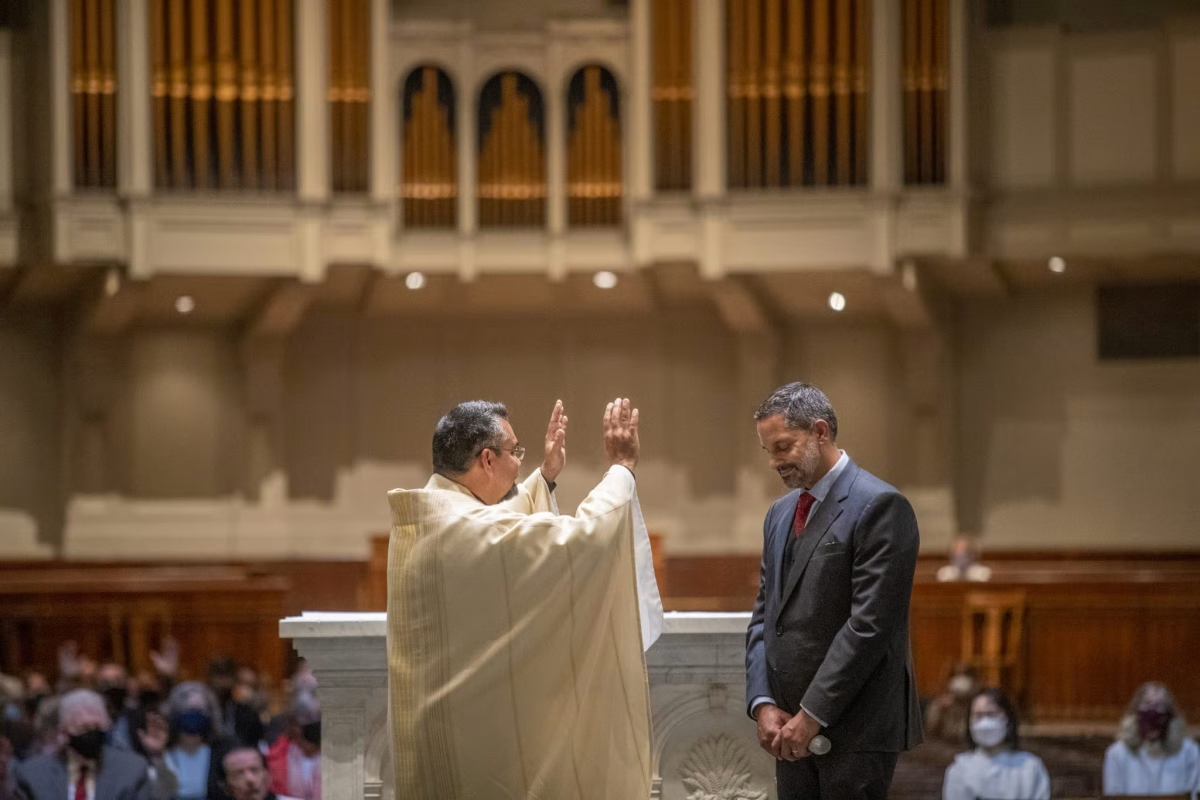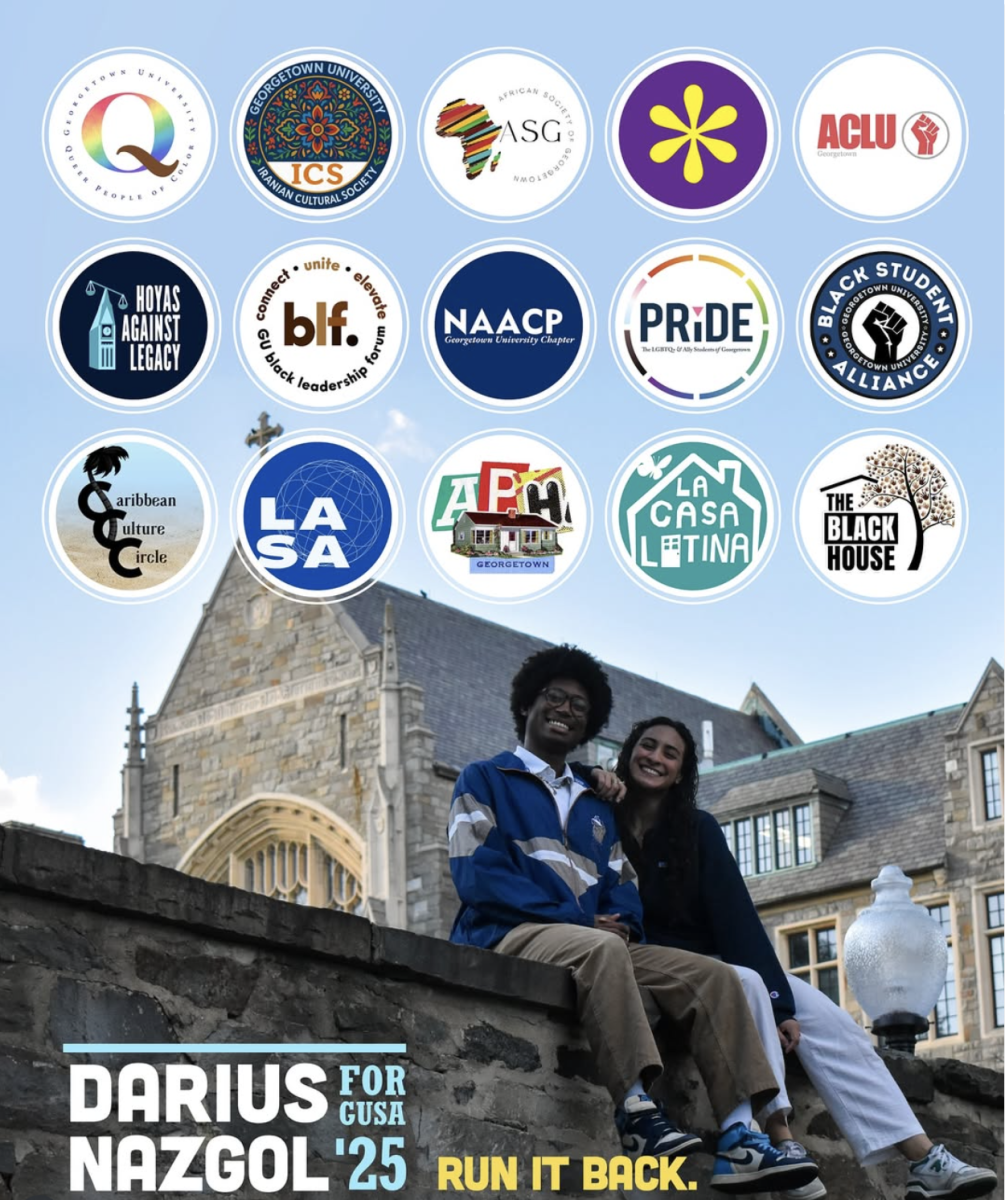The Georgetown University Student Association (GUSA), Georgetown’s student government association, passed four bills that aim to include students in residential hall redevelopment plans, increase transparency for transfer credits and expand meal plan access at a Sept 21. senate meeting.
The legislation the senate approved included a bill asking for rooftops and student input in any redevelopment plan for Village A, clearer evaluations for transfer credit and the expansion of Flex dollars, a program included in some meal plans that allows students to purchase food and drink at on-campus dining locations, to student-run organizations. The senate also passed a nonbinding resolution in support of Georgetown University Transportation Shuttle (GUTS) drivers as the university plans to transfer management of GUTS to a third-party vendor.
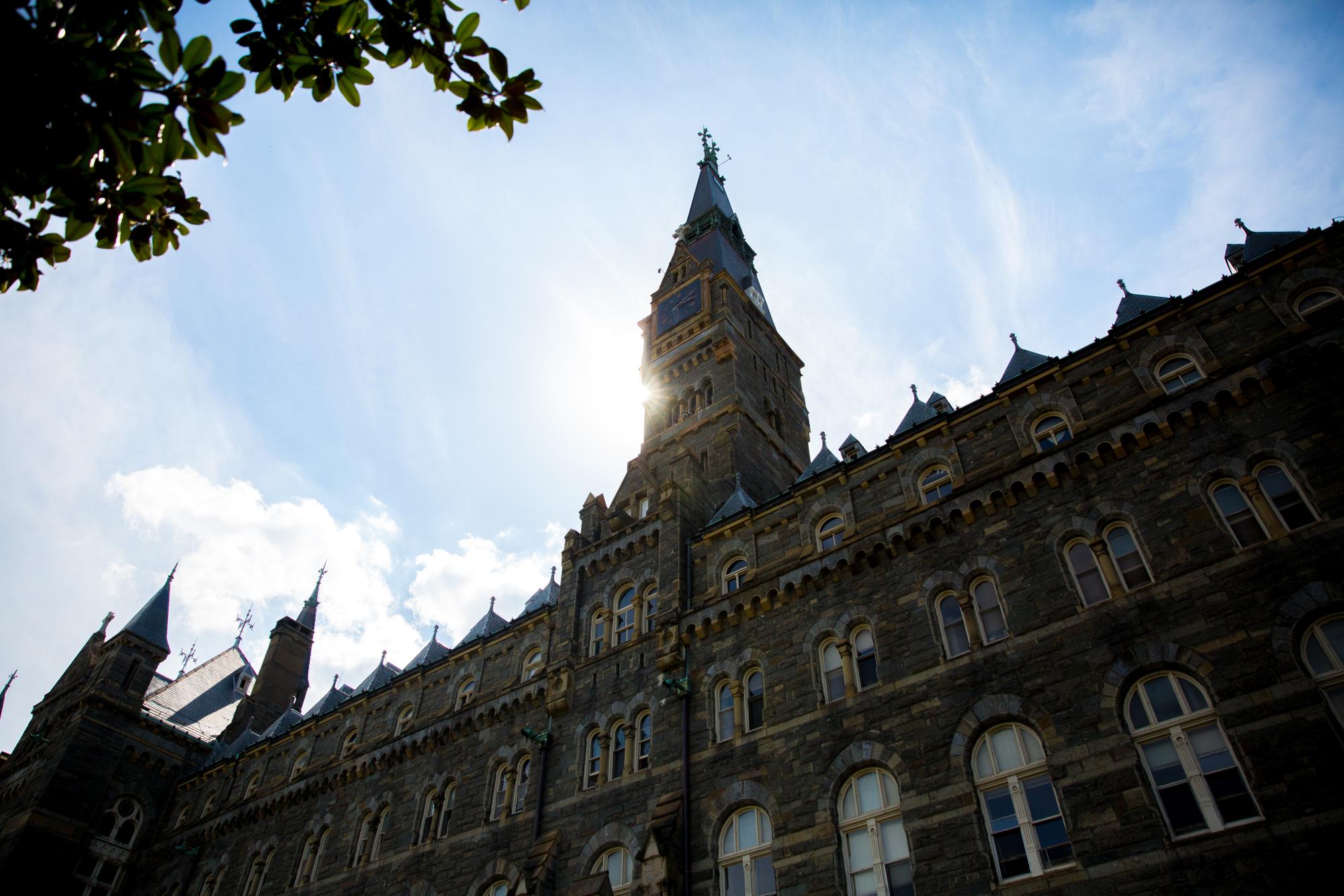
Saahil Rao (SFS ʼ27), the speaker of the senate, said GUSA should express its commitment to maintaining Vil A’s social spaces, especially given recent crackdowns on parties.
“Given the climate of social culture at Georgetown — restricting Vil A, parties during homecoming, this new unofficial warning system — I thought it was prudent to express to the administration that GUSA, in no uncertain terms, wants similar rooftops on Vil A,” Rao said at the meeting.
The bill, which passed nearly unanimously, asks that the administration include at least one undergraduate student representative on Vil A’s planning and design committee and that any redevelopment proposal include rooftop access. According to a campus plan submitted in 2016, the university plans to renovate or expand Vil A by 2036.
Senator Cameran Lane (CAS ʼ28) said the student body strongly supports maintaining the Vil A rooftops as they are a central part of campus life.
“We overwhelmingly want to preserve the rooftops on Vil A, regardless of what the current status is — if it’s guaranteed, if it’s preliminary,” Lane said at the meeting. “We know that the student body overwhelmingly wants to see that space continue to be an integral part of student life.”
The senate unanimously passed a bill calling for an increase in transparency for credit evaluations for transfer students.
Senator Asha Gudipaty (CAS ʼ27), who introduced the bill alongside four other senators, said transfer students often face challenges when submitting their past credits to Georgetown.
“It has been a historically frustrating process because of credits not being transferred, credits not being counted toward certain majors, departments, and transfers have been left financially burdened,” Gudipaty said at the meeting. “It’s about making the policies more generous and more visible.”
The senate also unanimously passed a resolution in support of GUTS workers in response to a university plan that will require workers to either transfer to an outside contractor, which would mean they are no longer university employees, or shift to a position in another department, many of which pay less. The GUSA executive branch signed a petition launched by the Georgetown Coalition for Workers Rights (GCWR), which advocates for labor issues on campus.
In addition, senators voted unanimously to approve a bill that advocates for expanding Flex dollars to student-run organizations such as the Georgetown University Grilling Society (GUGS) and Georgetown Bubble, which sells bubble tea. Currently, on-campus dining locations and the student-run nonprofit The Corp accept Flex Dollars.
Senator Roan Bedoian (CAS ʼ28) said expanding Flex dollars will increase financial accessibility for students.
“I think this is a great bill because it allows students to spend their Flex dollars in a way that is better suited to them,” Bedoian said at the meeting. “Some students have the means to eat off campus, some students don’t, and so I think expanding the options for students who don’t is in line with financial accessibility.”
“Meal plans have been an issue this year, so this is one thing that we can try to do to give students more flexibility, especially students with dietary restrictions who are having trouble eating,” Bedoian added.
The senate also confirmed five students to the executive and established the financial accessibility and equity subcommittee, which aims to increase student input around financial accessibility and produce legislation in the senate relating to financial aid, club accessibility and other issues of financial accessibility.
Bedoian, who introduced the bill to establish the subcommittee, said it will work alongside the university’s office of financial aid to incorporate student feedback.
“It’s time we start doing something and establishing a working relationship with the financial aid office, but also more generally, that financial accessibility and equity becomes something that is a permanent issue in the GUSA senate because it’s something that’s really relevant here at Georgetown,” Bedoian said.


